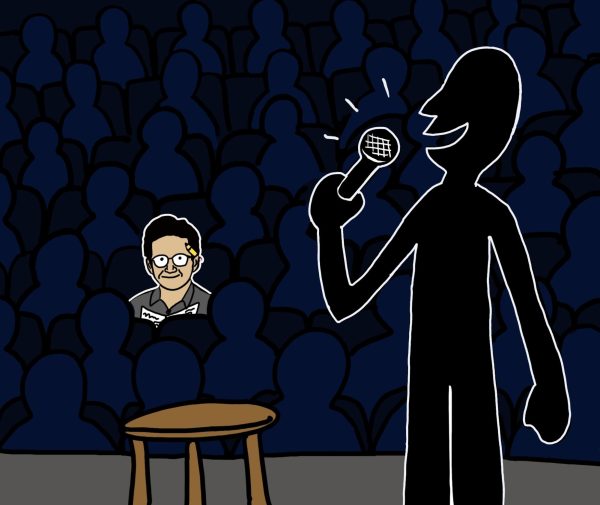‘Willow’ is an enjoyable train wreck
March 15, 2023
Make way Lord of the Rings, a new quest-focused fantasy is in town. The Willow franchise, consisting of a movie named Willow released in 1988 and a recently released sequel TV series also named Willow. Thirty-four years is a long gap to have before a sequel, and the show even pokes fun at this with the first episode’s end credit songs, being Guess Who’s Back by the band BEGINNERS.
Nonetheless, this large gap of time didn’t affect the franchise’s recognizable charm and lighthearted attitude. Willow (2022) continually references the original movie, and my favorite is in episode five, when Willow Ufgood stumbles upon one of his Brownie companions from the previous movie. The following conversation contains a bittersweet message about growing up, a message that fits well for a sequel that comes long after fans of the original movie have grown up.
This theme surrounding growth is even conveyed via the show expanding Willow (1988)’s worldbuilding. The earliest example of this can be found in the addition of the Immemorial city. This place is where the show’s antagonist, aka the Crone, and her disciples live, an abandoned city of mega proportions.
I greatly applaud the show Willow (2022) for breaking numerous gender stereotypes through Kit, Graydon, and Elora. It’s immediately shown that Graydon has a lack of physical strength, confidence, and apathy. Originally he seems to be introduced as lesser or a joke because of his lack of typical masculinity, but the show spends the rest of his arc showing that that’s not true. He displays immense intellect that is sometimes displaced by his sensitive heart, like when he releases the group’s mudmander, a creature who is the group’s only hope of arriving to the Immemorial City. Moving on to Elora, her character is wonderful! She gives off an authentic sense of womanhood that is hard to find in fantasy movies. Her style, mannerisms, ideals and hobbies are typically feminine, but she displays a sense of agency and confidence that isn’t commonly found in other feminine characters. When combined with her magical powers, she is the opposite of a damsel in distress without making it seem like her character’s purpose is to break that trope. Lastly is Kit. Kit’s character seems to mimic many other male characters that are praised for having hearts of gold with mean exteriors. Kit does not have any outstanding skills yet acts with large, almost arrogant, amounts of confidence. These are characteristics that are often condemned in woman characters but found attractive in men. However the show never treats Kit any worse than other media treat their male characters who are like her. Kit is shown to be loveable by Jade even before she improves in her emotional vulnerability and kindness.
In all, this excellent display of breaking stereotypes and superb representation can be credited to a mastery over writing characters as three-dimensional. Every single character has different sides to them, conflicting characteristics, and explicit motives. Unfortunately, this sheer skill did not extend to writing plot or dialogue.
Let’s start with the obvious. The dialogue between characters often feels inauthentic and disingenuous to a point where it breaks the audience’s suspension of disbelief. Suspension of disbelief is a contract an author makes with their audience that says, “Hey, if you pretend to believe dragons and magical powers are real I’ll make sure that everything else like injuries, food preparation, and characterization are realistic.” Breaking that contract causes a loss of quality in the writing. But what I find most horrible is how many of the plot points are set up. There isn’t enough time or clues before most plot twists, which makes them feel rushed and nonsensical. The most dire example is definitely finding out Graydon is a sorcerer, and a powerful one at that. Beyond his possession, which doesn’t equal one having magic powers, there is no sign of him having magic. To add insult to injury, there is very little reaction to his powers by the rest of the crew and next to no explanation of said powers. The entire twist didn’t make sense and was rushed, leaving me to sprint to keep up with the show’s logic.
In the end and against my better judgment, I became painfully attached to the show Willow. The experience of watching it was akin to watching a train wreck; the strong sense of horror that something with so much potential has gone so badly. Yet you just have to see how it ends so you can’t look away. (However the middle of the show did defy this metaphor.) In the end I would recommend this show to any fantasy lovers or those who enjoyed the original movie Willow. Just remember to approach the show with low expectations!




















